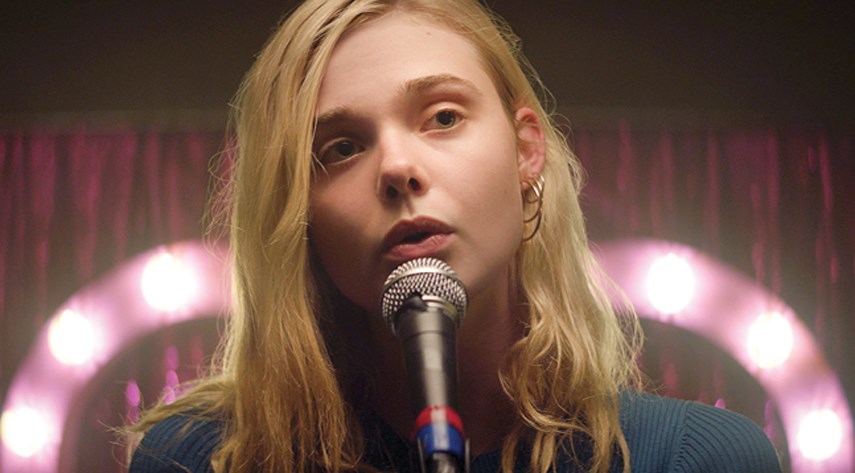Teen Spirit. Written and directed by Max Minghella. Starring Elle Fanning. Rating: 7 (out of 10)
In Teen Spirit, pop music is celebrated as the transformative medium it is, or can be, when handled with kid gloves (sequins optional).
First-time director Max Minghella, best known in North America as Offred’s love interest in The Handmaid’s Tale (and better known in the U.K. as the son of the late Anthony Minghella) knows this: he never demeans his subject in favour of an argument about “real music” or the promise of something better around the bend.
Pop music is what gets Violet (played by Elle Fanning), and millions of young people like her, through the day. Violet lives with her Polish single mother (Agnieszka Grochowska) on a ramshackle farm on the Isle of Wight, barely scraping by. It’s easy to see why Violet would want to escape the drudgery of milking goats, attending school and working nights to help the two of them stay afloat.
Some evenings Violet is able to sneak away and sing in front of a drunk and disinterested open-mic crowd. Mom disapproves, and would much rather she stick to the church choir: what better audience than the Lord? But it’s during one such session that Violet’s voice catches the ear of Vlad (Croatian-Danish actor Zlatko Buric), the first person to see her potential.
When an American Idol-type competition comes to town, Violet enters and convinces Vlad to be her chaperone. He agrees on the condition that he become Violet’s manager and train her for the competition. It turns out that Vlad was a famous opera singer in his day, though he offers little of his history. “I don’t like to think about the past,” he says. “You’re the future.”
After a few rounds Violet is headed off to London, where fresh temptations await. She meets a Simon-Cowell-in-stilettos record executive named Jules (Rebecca Hall, excellent) who wants Violet to sign her life away before the live competition even airs. Violet navigates the same brand of mean girls during various rounds of competition that she encountered in her high school. And last year’s contest winner (Ruairi O’Connor) emerges as a potential love interest or source of ruination, depending on how you look at it.
Violet is the clear underdog, the one who sings in her sneakers while the rest of the competitors are buried under makeup or tarted up in wings, wigs and various disguises.
Minghella is walking well-travelled domain here, and he doesn’t deviate much from the path. The film, like Violet, is reticent to wander into emotional territory and leaves connections loose between mother and daughter, Violet and her bandmates, and, to a lesser degree, between Violet and Vlad. For most of the film the tenderest relationship she has is with her horse. We need more urgency, more of the angst that pop music is so famous for.
The film is at its best when Violet lets her guard down and sings alone and along to songs by Robyn, Annie Lennox and No Doubt. Fanning does all her own singing and convincingly plays a young woman on her way to superstardom, if only it doesn’t consume her first.
The film ends with Fanning leaning all the way into a rendition of Sigrid’s “Don’t Kill My Vibe” and maybe that, along with the redemptive power of pop, is Teen Spirit’s ultimate message.



